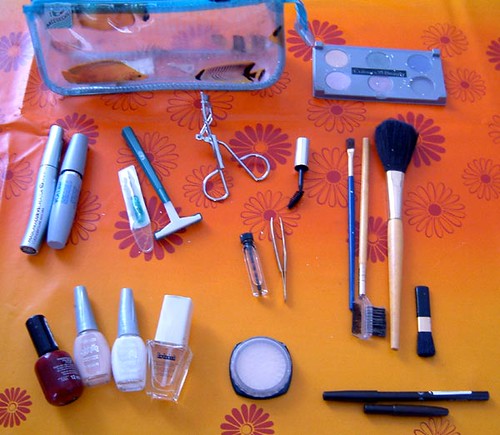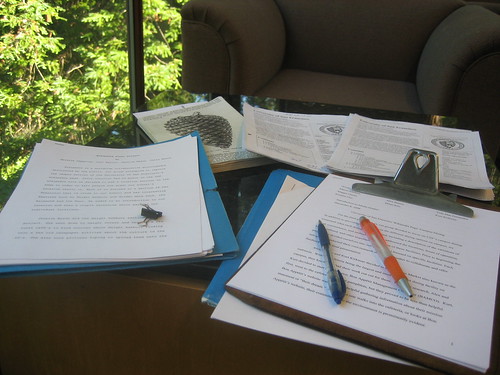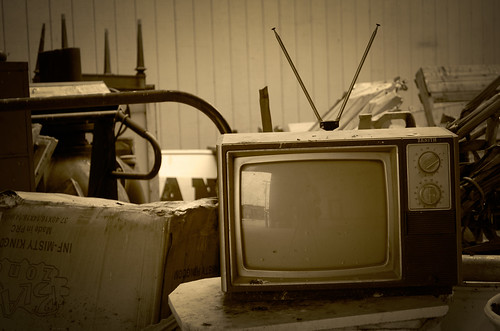Four years ago today, my dad died.
It was not the first time I thought that I had lost him forever, but it was the only time that it was true.
I struggle with how to talk about my father. Our relationship was strained. Part of me feels like these things should be secret, private, quiet. But the fact of the matter is that they are not secret. They are not private. And if they are now quiet, it is only because people have moved on to other things.
When my parents divorced, I was twelve years old. The court room proceedings were treated like a live taping of a talk show by many of the people in my small hometown. I have vivid memories of overhearing people saying that they had to hurry back from the lunch break because they didn't want to miss anything. It certainly had intrigue: sexual deviance, illicit affairs, physical abuse, mental anguish. This was high drama.
That part is not my story to tell, though. I was locked out of the courtroom to keep me "safe" from the words on the other side of the glass. I sat alone with my little sister and watched character witnesses take the stand, imagining what kind of words their angry faces might be producing.
Everyone knew everything. They whispered it in the hallways at school. Parents used it as evidence to keep their kids away from me because my family was "troubled." There is nothing secret about this story except the parts that people have forgotten. Anything they didn't know, they made up.
Anne Lamott says
"You own everything that happened to you. Tell your stories. If people
wanted you to write warmly about them, they should've behaved better."
So here is a story.
My father told me to "get out" of his house and "never come back" when I was fourteen years old, and I mostly obeyed. He was angry with me for "taking sides," which--as far as I can tell--meant telling the truth. Looking back on it now, I don't think he meant it, but I listened. I left, and we exchanged only the tiniest of words for nearly a decade.
I had enough time to fall into some bad teenage habits, climb out of them, graduate high school, go to college, meet my husband, become the first person in my family to graduate college, and start graduate school before we really spoke again.
Our conversations were cautious. There were booby traps everywhere, things we could not say, things we could not even think. We stuck to safe topics: politics and religion.
I invited him to my wedding, but I could not ask him to walk me down the aisle. I was afraid he wouldn't come. I couldn't risk it.
He did come. He kept telling his family members that he was just going to stay "for a little while." There were, after all, unresolved tensions around every corner, and I wasn't the only source of them. I'm sure he felt judged and anxious. I'm sure he was worried he would be unwelcome by not just me, but many of my guests.
He was one of the last people off the dance floor at the end of the night.
There are no excuses for many of the things my father did, and I will not try to create them. He hurt people. He hurt me. He abused. He destroyed.
One of the hardest parts of reconciling was realizing that I could not forgive him for the hurt he caused anyone else. I could only forgive him for the hurt he caused me. That was the only part I had any ownership over. I did it grudgingly. It was like I was climbing out of a ditch full of thorns. Every time I turned around to untangle myself from them, I got caught somewhere else. There was so much anger, so much blame, and so much hurt. I had finally gotten my arms over the top of the ditch. I was ready to pull myself out.
It was supposed to be a routine surgery. They were going to remove some arterial blockage. I stopped by the hospital on the way to a friend's birthday dinner. I gave him a cutesy "Get Well" card with a dog on it. I signed it, for the first time in over a decade, "Love."
The surgery was over and we were lighthearted. I gave him the card, he read it, and we joked and smiled. I said I would come back to see him tomorrow, and I left to go to dinner. As I walked out of the room, he said "I love you, baby." Maybe my signed "Love" had given him the courage to say words he'd been wanting to say for years? Maybe it was just a casual goodbye? It was the first time he had told me he loved me in my adult life, and it would be the last.
There were complications, and everything moved so quickly. By the time I made it back to the hospital, he was unconscious. We were given glimmers of hope. They had removed part of his intestines, but if blood started flowing, he could live. Pieces of his organs started failing slowly. The doctors started to refer to them, but not yet him, as "dead."
I was so angry, but I had no where to point it. Was I angry at myself for not climbing out of the ditch faster? Was I angry at him for putting me in it to begin with? Was I angry at the doctors who had apparently nicked an intestine during a routine surgery? Was I angry at my family whose abuse I could not forget and did not have the authority to forgive?
I was left alone with his body on a life support machine. I felt silly. He wasn't there.
It was clear that I was supposed to do something, to say something, to feel something. I sat next to his pale body and held his stiffening hand. "I'm sorry for hurting you, and I forgive you."
That was supposed to be the end of it, I think. Symbolically, that's what you do. But he wasn't there to hear it. I forgave a corpse, and I knew it.
It could have been much worse. I could have continued not talking to him. He could have died with me still at the bottom of that pit, still lying beneath the tangle of thorns, still seething. I think the thing that frustrates me most is that I was
so close to the top. It didn't take a tragedy to repair our bonds. We were doing it slowly, cautiously, thorn-by-stubborn-thorn. We needed more time.
We needed more time, but we didn't have it. I try to tell myself that it was enough, but I'm not always sure.
I want to end this with something positive, some message to take away, some lesson. I don't have that. All I know is that life is short, memories can be long, and forgiveness can be hard.








